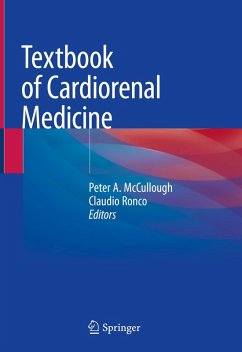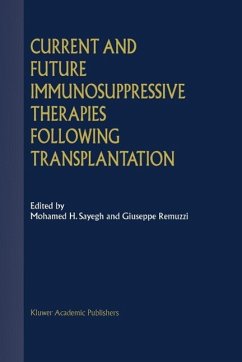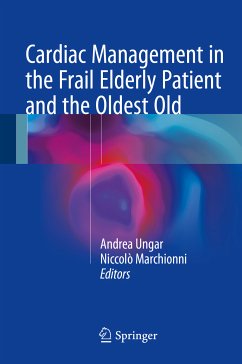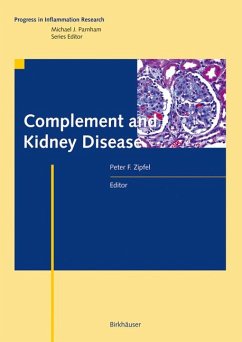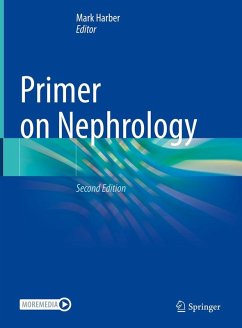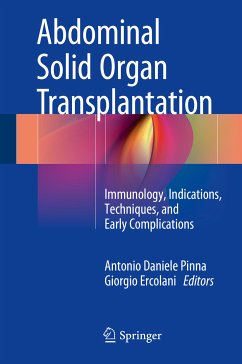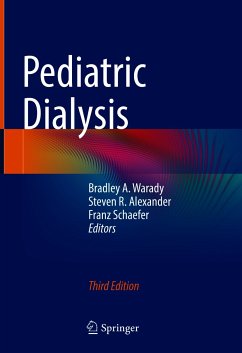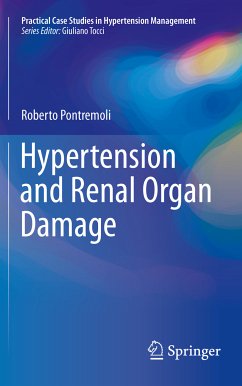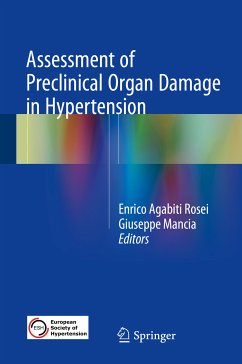
Organ Crosstalk in Acute Kidney Injury (eBook, PDF)
Basic Concepts and Clinical Practices
Redaktion: Musso, Carlos Guido; Covic, Adrian

PAYBACK Punkte
40 °P sammeln!
This is an original work dedicated to an important and current topic in nephrology: organ crosstalk in acute renal injury.Acute kidney injury is a prevalent and serious syndrome. The related mortality to this syndrome has not been significantly reduced in the last decades despite the advances in renal replacement therapy technology. For this reason, a new approach to obtain an effective treatment is urgently needed. The organ crosstalk perspective could be useful in order to achieve this objective since it implies a very early acute kidney injury diagnose and treatment.This book includes a com...
This is an original work dedicated to an important and current topic in nephrology: organ crosstalk in acute renal injury.
Acute kidney injury is a prevalent and serious syndrome. The related mortality to this syndrome has not been significantly reduced in the last decades despite the advances in renal replacement therapy technology. For this reason, a new approach to obtain an effective treatment is urgently needed. The organ crosstalk perspective could be useful in order to achieve this objective since it implies a very early acute kidney injury diagnose and treatment.
This book includes a comprehensive review of the organ crosstalk perspective in acute kidney injury. Organized in two parts, the chapters in the first part present general subjects as an introduction to analysing the crosstalk concept. These chapters give an overview of the concepts of biosemiotics, hormones, neurotransmitters, cytokines, signalling and adhesion molecules, organ intercommunication, and epigenetics. The second part gathers chapters on the different kidney crosstalk, such as brain, lung, heart, liver, gut, and placenta. Finally, there is a chapter dedicated to the influence of renal replacement treatment on kidney crosstalk.
Since acute kidney injury is a topic of interest to many health professionals, this work will be a useful resource to general practitioners, internal medicine physicians, geriatricians, nephrologists, critical care therapists, immunologists, and also biologists and bioengineers.
Acute kidney injury is a prevalent and serious syndrome. The related mortality to this syndrome has not been significantly reduced in the last decades despite the advances in renal replacement therapy technology. For this reason, a new approach to obtain an effective treatment is urgently needed. The organ crosstalk perspective could be useful in order to achieve this objective since it implies a very early acute kidney injury diagnose and treatment.
This book includes a comprehensive review of the organ crosstalk perspective in acute kidney injury. Organized in two parts, the chapters in the first part present general subjects as an introduction to analysing the crosstalk concept. These chapters give an overview of the concepts of biosemiotics, hormones, neurotransmitters, cytokines, signalling and adhesion molecules, organ intercommunication, and epigenetics. The second part gathers chapters on the different kidney crosstalk, such as brain, lung, heart, liver, gut, and placenta. Finally, there is a chapter dedicated to the influence of renal replacement treatment on kidney crosstalk.
Since acute kidney injury is a topic of interest to many health professionals, this work will be a useful resource to general practitioners, internal medicine physicians, geriatricians, nephrologists, critical care therapists, immunologists, and also biologists and bioengineers.
Dieser Download kann aus rechtlichen Gründen nur mit Rechnungsadresse in A, B, BG, CY, CZ, D, DK, EW, E, FIN, F, GR, HR, H, IRL, I, LT, L, LR, M, NL, PL, P, R, S, SLO, SK ausgeliefert werden.



